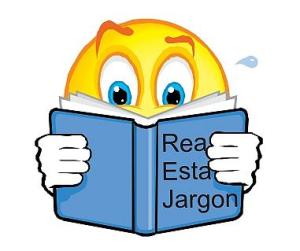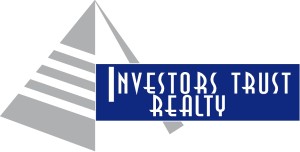 |
||||||||
| Before selecting a real estate agent or buying a home, most consumers head to the Internet first. Researching homes and real estate agents online can get you ahead of the game when it comes to narrowing down your options. But with so many sites and sources to choose from, an online search can be exhausting…and sometimes futile. Here’s a guide to help you navigate the web when searching for a home or real estate agent. | ||||||||
|
Your Guide to Real Estate Jargon
 Confused about Real Estate terms you’ve heard ? Here’s a guide to some commonly used Real Estate jargon that will make you an expert in no time.
Confused about Real Estate terms you’ve heard ? Here’s a guide to some commonly used Real Estate jargon that will make you an expert in no time.
Amortization – Refers to the repayment schedule on a mortgage. At the beginning of a loan term, most payments are applied towards the interest due, rather than the principal. Towards the end of the loan term, the situation flips: the interest has been paid in advance, so most payments apply towards principal paydown.
APR – Stands for “annual percentage rate,” and is the most accurate indicator of the cost of a mortgage loan. The APR reflects all of the closing costs, which can total as much as 3 to 5 percent of the loan. The best way to price-compare between various mortgages is by looking at the APR rather than the interest rate. The APR can be found on your loan disclosure documents.
Appraisal – Refers to a qualified appraiser providing a written estimate of a property’s value. This is considered the most definitive expression of a property’s value (short of an actual arms-length transaction) and is often required by lenders.
Assessment – Refers to the city or county’s opinion of the property’s value. Important note: Assessments impact your property tax rate. Appraisals do not.
ARM – Stands for “adjustable-rate mortgage,” a type of mortgage in which the interest rate fluctuates based on the prevailing rates in the overall economy. Many ARMs will lock a fixed interest rate for a limited period of time, such as 5 years, 7 years or 10 years. Many will also guarantee that a rate increase will be “capped” at a certain maximum, such as 2 percent.
Balloon Payment – Refers to the practice of paying off the entire mortgage balance in full. Some loans (particularly those given to investors) are short-term mortgages that require a “balloon payment” at the end.
BPO – Stands for “Broker Price Opinion.” Refers to a licensed real estate broker providing a written opinion as to the fair-market value of a property. This is different than an appraisal.
Cash-Out Refinance – This refers to the practice of taking out a loan over a fixed term (as long as 30 years), borrowed against the equity in a home. For example: a homeowner who possesses a lot of equity can take a “cash-out refi” for tens of thousands, which he then uses to launch a business, buy a rental property, or any other goal.
Capital Gain – When an owner sells their home, the increased value of their home is a capital gain. Fortunately, owner-occupants who reside in their primary residence for two years or more do not need to pay capital gain tax on the sale of their property.
Closing Costs – A blanket term for all of the ancillary costs associated with borrowing a mortgage and buying a home. This includes title insurance, a loan origination fee, title search fees, recording fees, underwriting fees, and more.
Contingency – When a buyer submits an offer to purchase a property, they commonly make the offer “contingent upon” some condition, such as financing or a favorable home inspection. This means the offer “hinges upon” that condition playing out favorably, and can be withdrawn if the condition isn’t met.
Depreciation – Many people believe that their home value rises. In fact, the value of the underlying land may rise, but the actual structure depreciates each year. The roof, carpet, paint, HVAC and other components of the home experience aging and decay. (In markets with rapid appreciation, though, the retail value of the structure might outpace depreciation.) Depreciation is reported on IRS Form 4562.
Fixed-Rate – Unlike an ARM, a fixed-rate mortgage (sometimes just called “fixed”) retains the same interest rate over the duration of the loan, regardless of what’s happening in the overall economy. A 30-year fixed loan, for example, will retain the same interest rate for the full 30-year span.
FHA – Refers to the U.S. Federal Housing Administration. Many first-time homebuyers opt for loans that are insured by the FHA. Known as “FHA loans,” these require a smaller downpayment (as low as 3.5 percent).
GC – “General Contractor,” a licensed designation that indicates someone who organizes a major renovation and coordinates all the specialty sub-contractors such as the electricians, drywall installers and plumbers.
Highest and Best – Also known as “Best and Final,” this represents the best (seriously, the best) offer that you can make the seller. If the seller receives multiple offers, she might call for all the bidders to submit their “highest and best” (or “best and final”) offer by a particular deadline, so that she can select among these final offers.
Inspection – Prior to purchasing a house, a professional inspector (certified by ASHI, the American Society of Home Inspectors, or an equivalent organization) should spend 3-4 hours throughly investigating the home. The inspector focuses on structural flaws, mechanicals like plumbing and HVAC, and other aspects of the home. The inspector can furnish a written report, but cannot quote a price for repairs (he’s not a contractor.)
LTV – “Loan-to-value.” This refers to the ratio of the loan amount, relative to the overall value of a property. For example: a $70,000 loan on a $100,000 property will have a 70 percent LTV ratio.
RE – This is an easy term: “RE” simply stands for “real estate.” Many professionals use this shorthand.
REALTOR – Fun fact: Not all real estate agents are REALTORS. A real estate agent is an individual who is licensed to buy and sell real estate. A REALTOR is an agent or broker who belongs to the National Association of REALTORS.
Multi-Generational Housing
Home ownership is at it’s lowest level since 1995 thus, the rental market has experienced record low vacancy levels, in fact Portland, OR is 5th in the Nation with a vacancy rate of just 2.2%. In some cases, would be renters have started doing what is very common place in most other parts of the world, move in with family i.e., Multi-Generational living.
From a Broker’s prospective it’s always been a dual edged sword, either you couldn’t find a home that had separate living arrangements on those rare occasions when new buyers inquired or you spent countless hours pondering the challenges in listing & selling such a home as you realized it was a limited audience. Perhaps potential buyers would have been more open to the idea of purchasing a property that had dual living arrangement possibilities if they felt they weren’t paying for something they might never use, such as a 2nd kitchen or laundry area…after all, getting the most bang for your buck is a universal goal.
I started thinking back to all the houses I’ve been inside that could have had a wide variety of uses but, decided to go in one direction or another with no turning back. For those who may be considering creating such a living arrangement in their own home or possibly purchasing one already done, I thought I would share some thoughtful design tips from an upcoming listing of mine at 476 SE 26th Ave Hillsboro, OR. Credit for any helpful tips should really go to the Seller/Owner for keeping things in perspective in regards to just how far to go in weighing needs to make life easier versus future resale. It certainly didn’t hurt matters that the builder ( a life long friend of the Seller & client of mine) had a few thoughts of his own, in addition to being a master craftsman….that all happened in 1996, long before I came into the picture.
There are certain considerations that hold true whether building/remodeling for a special purpose or to create the most value for future resale. Typically, a one-level property sells for anywhere from 5-15% more than a comparable 2-story house with the same square footage. This particular house is a day ranch thus it does have 2 levels, although it was designed & built to conform with the naturally sloped lot it sits on. The lower level is above grade and the rear patio is accessible from any of the (3) 8′ sliding glass doors, certainly not a basement feel. The exterior excavation utilized at the time allowed not only for proper drainage, hard scape & deck walkways around but, also took into account the possibility of someday eliminating steps in order to create gradual grade paths that would be ADA compliant. The front entrance has a ‘no step’ entry with sure footed hard scape leading up to the house, suitable for all weather conditions. Wide hallways & doors not only allow for easier movement within the house but, the open feel does not go unrecognized by those who don’t have any mobility issues thus, another future resale plus. Flooring materials that are attractive but, also serve in being durable & slip resistant are also considerations that can’t be overlooked…the use of high quality tile & tight pile carpet throughout lend itself well to both beauty & practicality. Bathroom shower design in recent years has seen a trend towards walk-in’s, in many cases with no threshold defining the showers edge…the design of the showers herein was most likely done with practicality in mind but, there certainly was thoughtful attention to detail for future resale. The kitchen, or in this case kitchens, is the central point to any house and moving about them as been made easier with an open layout with wider than usual entry/exit points. With the potential for 7 bedrooms, although listed as 5, the ease for adding/subtracting rooms or changing their purpose has been made far easier by a well thought out design. The foot print of the house incorporates strategic placement of utilities, including electrical outlets, heating & cooling vents & plumbing. Planning for future improvements should always be a consideration for your remodel or new construction project, as it was in this case.
What you should know about the rental market.
Whether you own rental property or not it’s current State of the Union may effect your personal financial situation and if not now, perhaps down the road so, keeping abreast of the rental market is as important as watching your 401-K. If you own rental property your probably glad you do as rents have increased 6.5% so far in 2014. 78% of leases in 2013-14 were renewed and 75% of those saw increases. If your one of the 25% of renters who renewed without an increase, good for you ! There certainly isn’t anything wrong with renting or more importantly living within your means…after all, living above ones means started this mess in the first place. Home ownership is currently at it’s lowest level (64.8%) since 1995, the same year that the Community Reinvestment Act made regulatory changes that required lending institutions to make loans that might otherwise not have been made thus, by 2004 home ownership was at it’s peak.
With home ownership declining the rental market has seen record increases, in fact Portland is #5 Nationwide with a 2.2% vacancy rate thus, it’s no wonder that 60% of the Foreclosed homes State wide became rentals in 2013. Unlike just a few short years ago, it may be possible for those who are having difficulties meeting their note payments to rent out their homes and stay above water. For those of you who may be considering rental property as a part of your overall portfolio I would be glad to answer any questions you may have. The market for multifamily properties, particularly commercial (5 units +) is fierce so, it does take some patience. Regardless of whether the Real Estate market is on an upward spiral or decline there is typically something that can help you either increase your position or maintain what you have if you have the right information & guidance along the way.

Broker Referrals
What Buyer’s should know about Broker referrals…
Ask any Broker about referring Lenders, Home Inspectors or Contractors to their buyer clients and you’ll get a wide range of answers from referring several for each trade, referring just their most trusted individual to not referring anyone at all. The one common thread among those three points of view is the Broker’s concern for his/her liability. Of course, the buyer simply wants to hire someone with expertise to help them obtain a loan, inspect a house or make repairs so, should the Broker’s issues with liability be a concern for the buyer ? Unfortunately, the answer is yes but, how your Broker deals with walking the fine line between being a resource for all your needs and protecting his/her liability will determine whether you’ll have a good working relationship and be able to accomplish your goals. This is certainly a question you can pose to any Broker you may be considering to work as your Buyer’s Agent before hiring them.
Why should a Buyer be concerned with the Broker’s potential liability…the short answer is because in an Agency relationship your Broker’s liability could become your liability. You’ve hired someone to represent you thus, what they say and do in that capacity may have unintended consequences for you. Regardless of which point of view a Broker takes in regards to providing referrals or not, if they’ve made that decision with the intent to protect all involved from the harm of potential liability then they have served their clients well. Of course, there still is that fine line between potential liability and providing a buyer with high quality service.
In 20 + years I’ve observed Broker’s not only practice one of the three above referenced points of view in regards to referrals but, some pretty unique defenses of those positions as well. It’s common place to hear Broker’s say they always refer “3” of every trade but, all too often it’s followed with some sort of disclaimer that they’ve now cleansed themselves of any liability by doing so. There is also a saying that goes “your only as good as the last name on that list” thus, the client still got the names from the Broker so, if one goes bad then who is to blame, the buyer for making a bad selection or the Broker for providing the names ? In many cases the buyer’s are glad to have three names from which to choose and things go just fine however, there are buyer’s who require more pinpoint direction and that means being guided to the sole individual expert who’ll solve their issue. To this type of buyer, 3 names may be looked upon like handing them the yellow pages and wishing them good luck & that leads us to Broker’s who proudly state their “no referrals” policy. I try to put myself in my clients shoes whenever possible and I can’t imagine how stressful it would be to be left on your own to trust a total stranger to take you thru a crucial point in a transaction. Needless to say, I’m not in the camp with either of those Broker’s who would provide multiple names or leave you on your own. I just closed a transaction wherein my buyer’s & I encountered a seller who had just went thru a sale fail that included making repairs to his roof which were improperly done…it factored in that deal terminating, as well as being an issue when our inspector called out the improper repairs a second time. This was a situation wherein the seller simply searched on his own to locate a roofer & unfortunately, it didn’t fare well. Having had the rare opportunity to meet the seller in person, I was taken back by his obvious embarrassment for what had happened previously. It’s a situation such as this that confirms my belief that I will continue to provide only the most trusted individual lenders, inspectors & contractors to my clients. Brokers are only permitted to share referral fees with other Brokers, not lenders, Home inspectors or contractors thus there are no financial incentives, other than providing a valuable resource to the client. I constantly review records & information on all trade referrals to ensure that anyone I refer to a client would be the same individual I would trust in my own home.
Although most Real Estate Broker’s are not experts on home inspections or construction we do have an obligation to our clients to have sufficient knowledge to address issues related to buying & selling property, including providing information that may require more advanced expertise from Attorneys, CPA’s or Contractors etc. It would be very difficult, if not impossible, to understand when those ‘next steps’ are required if a Broker essentially removes him/herself from a transaction by not taking part in all the issues that effect a client, such as when & who to hire in addition to the Broker.

What you should know about the Rental market…
Whether you own rental property or not it’s current State of the Union may effect your personal financial situation and if not now, perhaps down the road so, keeping abreast of the rental market is as important as watching your 401-K. If you own rental property your probably glad you do as rents have increased 6.5% so far in 2014. 78% of leases in 2013-14 were renewed and 75% of those saw increases. If your one of the 25% of renters who renewed without an increase, good for you ! There certainly isn’t anything wrong with renting or more importantly living within your means…after all, living above ones means started this mess in the first place. Home ownership is currently at it’s lowest level (64.8%) since 1995, the same year that the Community Reinvestment Act made regulatory changes that required lending institutions to make loans that might otherwise not have been made thus, by 2004 home ownership was at it’s peak.
With home ownership declining the rental market has seen record increases, in fact Portland is #5 Nationwide with a 2.2% vacancy rate thus, it’s no wonder that 60% of the Foreclosed homes State wide became rentals in 2013. Unlike just a few short years ago, it may be possible for those who are having difficulties meeting their note payments to rent out their homes and stay above water. For those of you who may be considering rental property as a part of your overall portfolio I would be glad to answer any questions you may have. The market for multifamily properties, particularly commercial (5 units +) is fierce so, it does take some patience. Regardless of whether the Real Estate market is on an upward spiral or decline there is typically something that can help you either increase your position or maintain what you have if you have the right information & guidance along the way.








